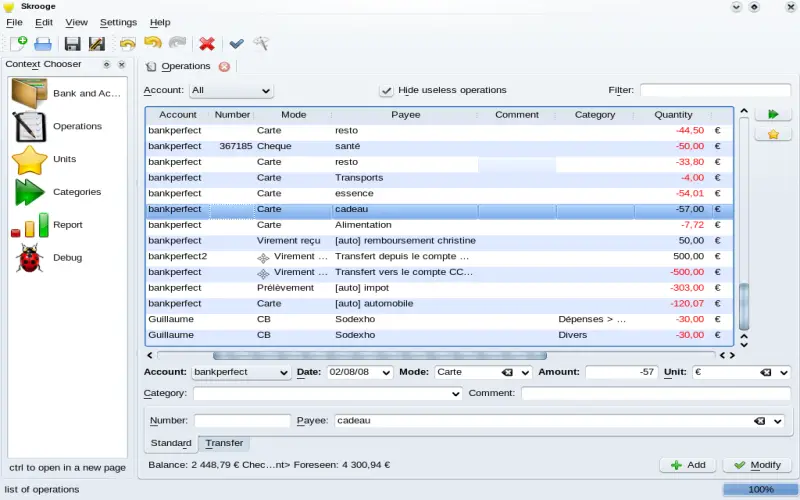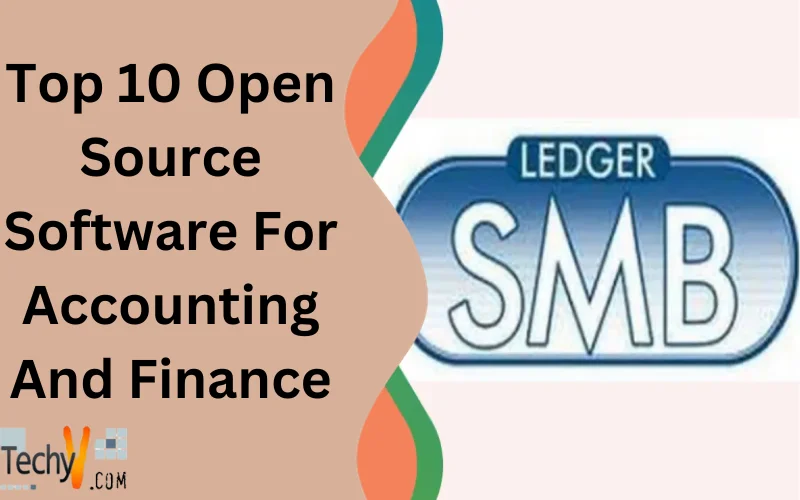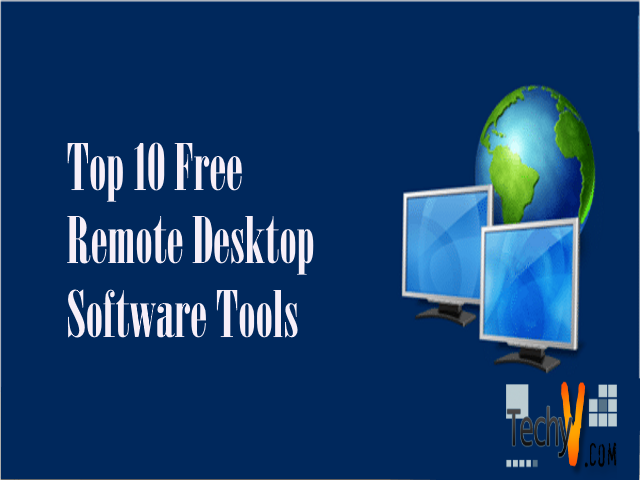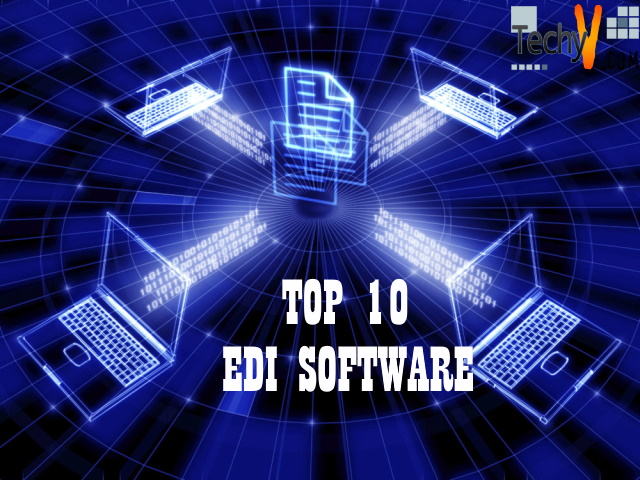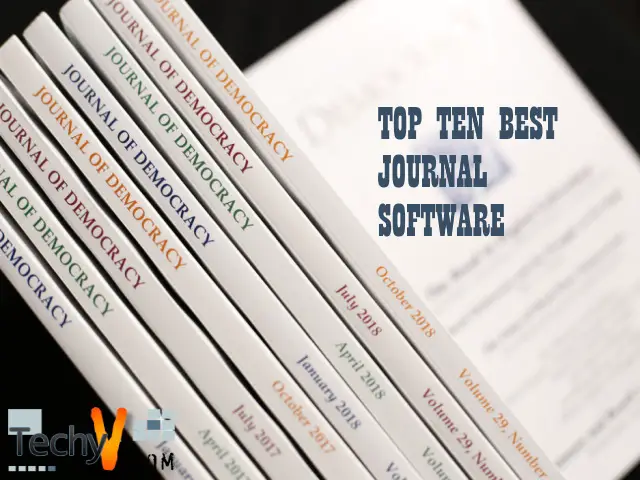Open source software can be a real money saver for handling accounting and finance needs, in my opinion. Avoiding expensive proprietary programs allows more bucks to be kept in your pocket. Open source also lets you take the reins in controlling your financial data. From basic money management apps for individuals to enterprise ERP software for complex operations, excellent free and low-cost tools exist. The available programs differ widely in capabilities, so assess your specific requirements to determine the best fit. Careful selection allows for achieving needed financial oversight and reporting without overspending. Power to the people! Here are my picks for the top 10 open-source accounting and finance software options.
1. GnuCash
A flexible personal and small business financial accounting program, GnuCash provides powerful capabilities for tracking bank accounts, investments, income, and expenses. Users report GnuCash is easy to use for basic personal accounting but also has strong double-entry bookkeeping features for managing small business finances. With regular software updates and support from the large worldwide GnuCash user community, this accounting application consistently earns high marks. GnuCash integrates with Quicken and allows importing QIF and OFX data. The reports and graphs make analyzing finances a breeze. GnuCash supports multiple languages and currencies. For open-source accounting software with staying power, GnuCash is hard to beat.

2. SQL-Ledger
This robust web-based accounting system handles all essential accounting functions including general ledger, accounts payable/receivable, invoicing, vendor management, customer management, and inventory control. SQL-Ledger seamlessly integrates with enterprise database systems like MySQL, PostgreSQL, Oracle, and ODBC-compliant databases for industrial-strength data storage and reporting capabilities. The active international development community continues advancing SQL-Ledger’s functionality. The built-in support for multiple tax rates makes this software suitable for global business. With its scalability and database integration, SQL-Ledger is likely a good fit for small to midsize companies requiring double-entry accounting, inventory management, and robust reporting.
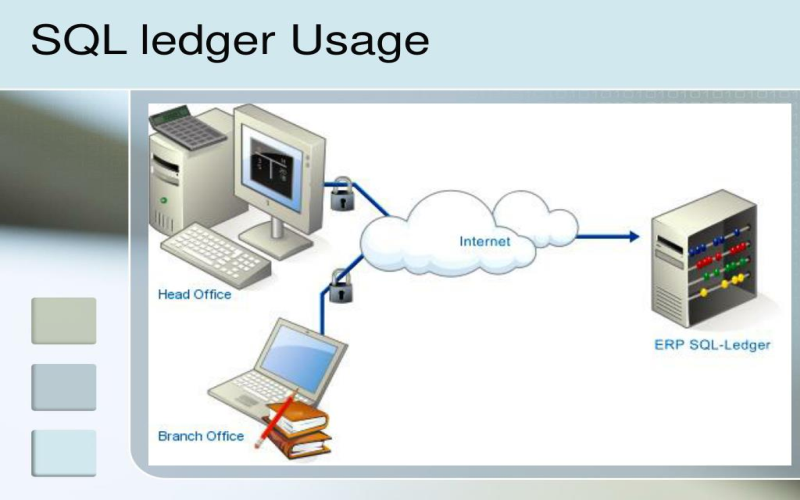
3. FrontAccounting
A PHP-based accounting application designed for enterprise users, FrontAccounting is built to be scalable for growing businesses and feature-rich to handle complex accounting needs. It supports multiple languages, currencies, warehouses, and tax rates, making it suitable for international commerce. FrontAccounting modules deliver functionality for accounts payable/receivable, inventory management, sales and purchase orders, shipping, invoicing, credit notes, debt tracking, payroll, manufacturing, and assembly management. For manufacturers, wholesalers, distributors, and other businesses requiring supply chain management tools, FrontAccounting is worth a close look.
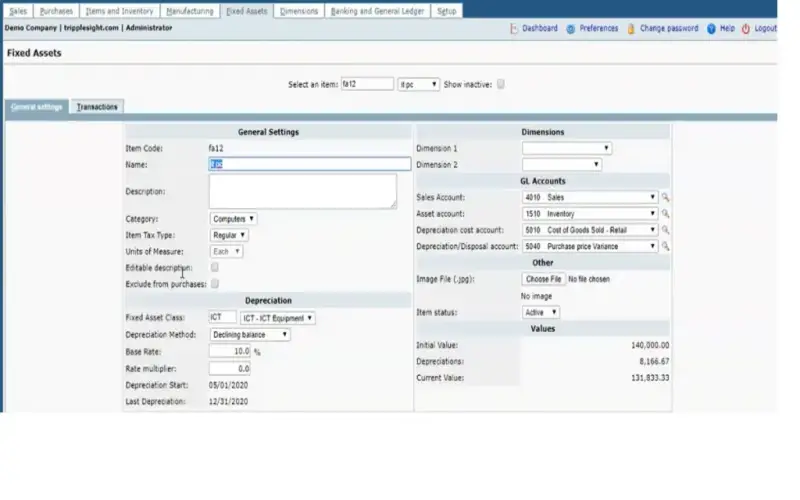
4. TurboCash
For a full spectrum business accounting system without the prohibitively expensive price tag, check out TurboCASH. This affordable software provides all essential accounting capabilities for accounts payable/receivable, inventory control, sales and purchase order processing, billing and invoicing, credit card processing, and more. Importing data from Excel or CSV spreadsheets allows businesses to smoothly transition over from manual bookkeeping processes. The interface is intuitive but also highly customizable to match your workflow. With reliable accounting fundamentals plus excellent community support, TurboCASH is appealing to many SMBs and non-profits wanting better financial oversight.
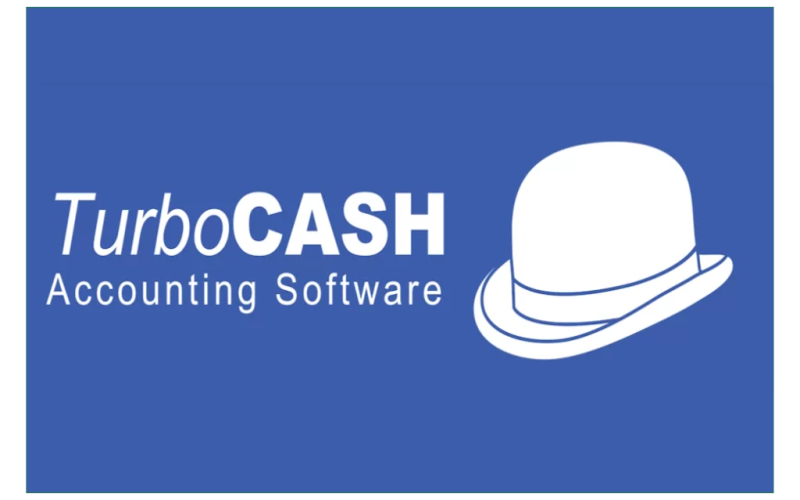
5. LedgerSMB
Built on a foundation of Perl and PostgreSQL, LedgerSMB delivers industrial-strength double-entry accounting for growing small to medium enterprises. It provides complete capabilities for sales order processing, purchasing, billing, invoicing, shipping, inventory control, lot and serial number tracking, manufacturing, and distribution. It can calculate taxes for multiple tax jurisdictions. Interfaces connect LedgerSMB with e-commerce platforms like Magento for integrated, automated order fulfillment. The development team prioritizes security, robust testing, and auditability to protect financial data integrity. The global community supporting LedgerSMB gives peace of mind that the software will continue evolving. If in the market for enterprise-capable open-source ERP software, give LedgerSMB serious consideration.
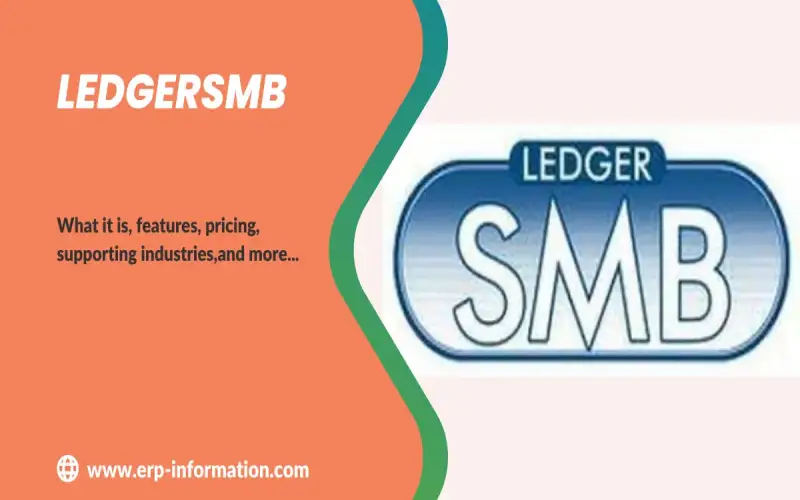
6. Money Manager Ex
A completely free personal finance manager designed to help regular folks like you and me better budget, organize finances, and get in control of spending. This easy-to-use cross-platform tool lets you set up personal or household accounts, schedule recurring transactions, record income and expenses, track investments, and run reports. Built-in financial calculators aid wise money decisions. Mobile apps synchronize data for managing budgets on the go. For those seeking user-friendly money management software without cost or complexity, Money Manager Ex can fit the bill.

7. PhreeBooks
A modular accounting solution tailored for small and growing businesses, PhreeBooks delivers core accounting capabilities online to track financials, inventory, orders, and customer interactions. PhreeBooks allows businesses to automate accounts receivable/payable, invoicing, vendor bill payments, payroll, customer management, and other tasks. The software can import data from Excel, CSV, and OpenOffice Calc to minimize manual data entry. PhreeBooks integrates with Stripe, Authorize.net, and others for payment processing. The open API allows custom integrations. For SMBs wanting essential accounting functions without purchasing full-blown ERP, check out PhreeBooks.
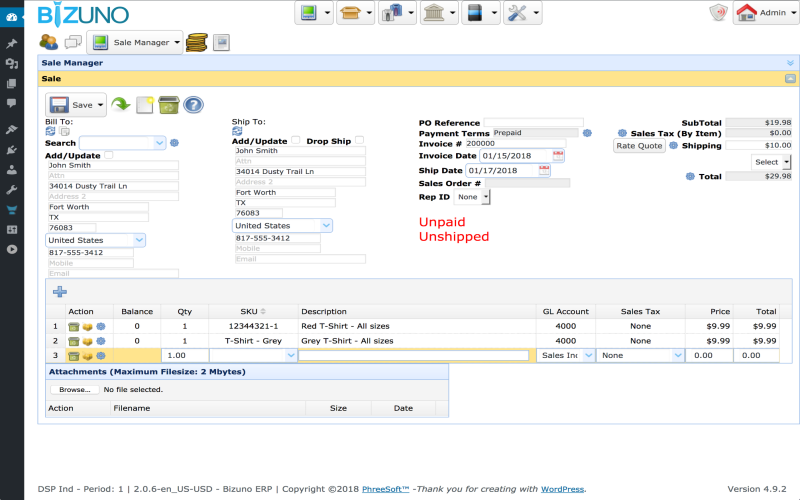
8. xTuple PostBooks
A solid accounting and business management system designed for small companies, xTuple PostBooks provides sales order processing, purchasing, billing, invoicing, accounting, customer and inventory management, shipping calculation, and light manufacturing capabilities. It can integrate with e-commerce platforms such as Magento. xTuple PostBooks features customer self-service portals for account management. Available as onsite software or in the cloud, it comes in a free PostBooks edition as well as paid Standard and Enterprise editions with expanded features. The open API and PostgreSQL database allow customization and integration. For growing businesses with fundamental accounting and management needs, xTuple PostBooks is worth considering.
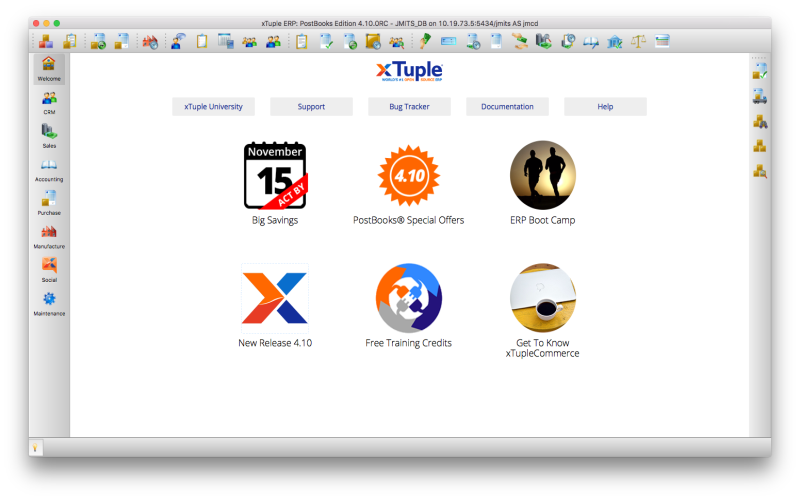
9. Dolibarr
An open-source integrated business platform aimed at SMBs, non-profits, and freelancers. Dolibarr’s CRM features help manage leads, prospects, clients, contracts, and sales. The software has modules for invoicing, shipping, inventory, procurement, expense reports, time tracking, point of sale, and more. Customizable user dashboards display key analytics. Access control allows the management of user permissions. With its breadth of features beyond just accounting, Dolibarr can automate many business operations. The active community ensures improvements continue. Dolibarr is worth exploring for small organizations wanting integrated business management without high costs.
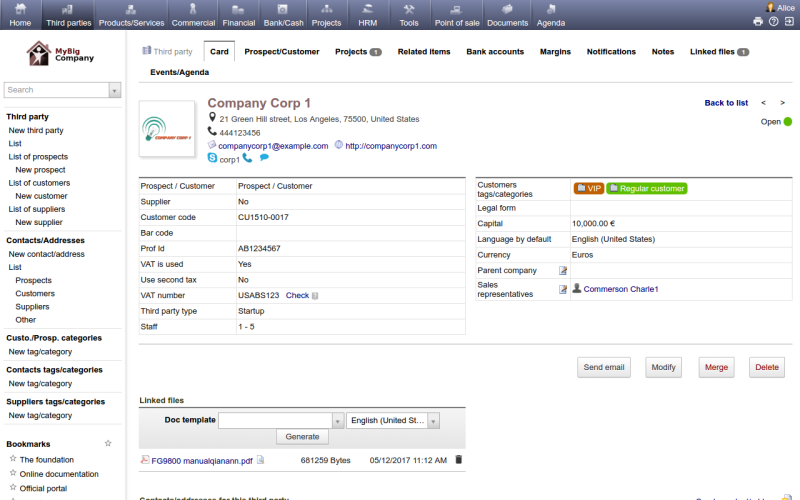
10. Skrooge
A personal finance manager designed for the Linux KDE desktop. Skrooge lets you track income, expenses, savings, and account balances over time. Budgeting and forecasting tools help guide smarter spending and money management. Automatic import from CSV and QIF data saves time on manual entry. Bank statement reconciliation and reporting provide insights into cash flow. If seeking a Linux open-source solution for personal accounting, Skrooge is a leading choice.
